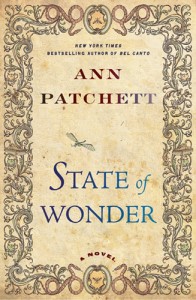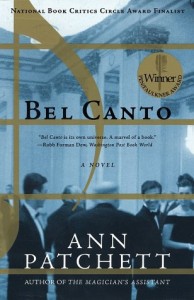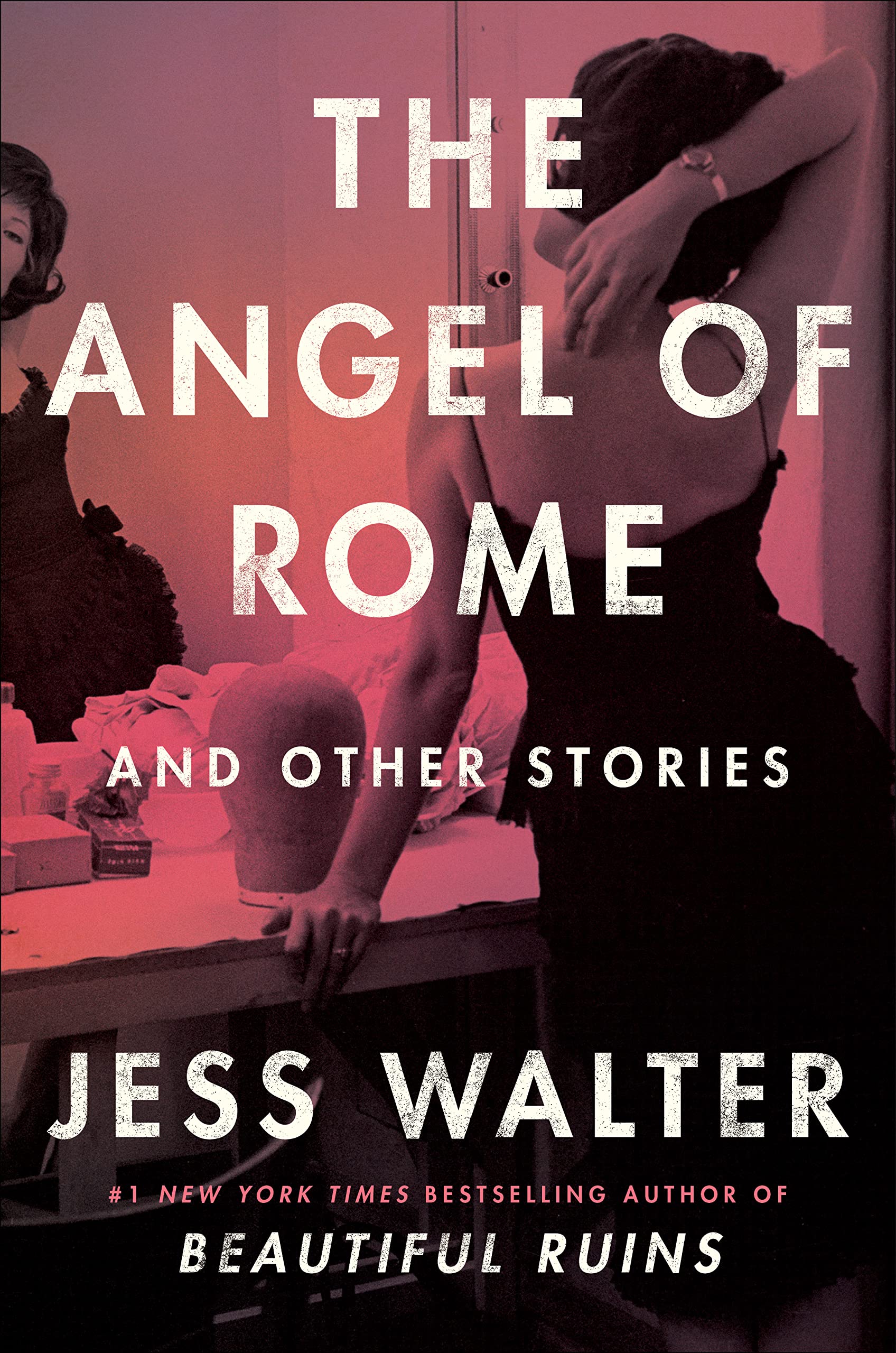 When discussing plot, consider Leo Tolstoy’s axiom: “All great literature is one of two stories; a man goes on a journey or a stranger comes to town.” In her sixth novel, State of Wonder, Ann Patchett launches a contemporary woman on a personal and professional journey, delivering an ambitious narrative and an entertaining read.
When discussing plot, consider Leo Tolstoy’s axiom: “All great literature is one of two stories; a man goes on a journey or a stranger comes to town.” In her sixth novel, State of Wonder, Ann Patchett launches a contemporary woman on a personal and professional journey, delivering an ambitious narrative and an entertaining read.
The woman is Marina Singh, a researcher in a Minnesota pharmaceutical lab who embarks on a mission to the Amazon. She is dispatched there to recover the details of her coworker’s recent death, and to evaluate the research of a field team deep in the jungle, a team headed up by her former mentor, Dr. Swenson. The checkered relationship between mentor and mentee, between student and teacher, is at the fulcrum of the novel’s central tension.
Deposited in the South American city of Manaus, Marina sets out to track down Dr. Swenson, whose work on developing a controversial new fertility drug suggests a scientific quest for progress, and the invasion and potential exploitation of the Lakashi, a fictional population indigenous to the Amazon.
As in all odysseys, what particularize Marina’s journey are the hurdles, and how she reacts to them. Speed bumps along the way are also what give a story literary traction, and, as in Bel Canto, Patchett is a master of creating extraordinary circumstances for seemingly ordinary characters.  Marina loses her suitcases, her clothes, reading materials, cell phone, and ties to the outside. Once in Manaus, she must endure numerous tests of will in order to find Dr. Swenson’s whereabouts, including scorching heat and a debilitating fever. Divested of her creature comforts, we see her at a vulnerable state and one that is ripe for transformation.
Marina loses her suitcases, her clothes, reading materials, cell phone, and ties to the outside. Once in Manaus, she must endure numerous tests of will in order to find Dr. Swenson’s whereabouts, including scorching heat and a debilitating fever. Divested of her creature comforts, we see her at a vulnerable state and one that is ripe for transformation.
Throughout, Marina is plagued with nightmares—a reaction to the anti-malaria drug Lariam—and these nightly rebellions of the psyche provide a recurring connotative trope:
Even if she went home tomorrow she would have to take it for another four weeks. It was the drug’s way of reminding the patient that the trip isn’t over. The trip would be in the blood stream, in the tissues. All the potential disasters of the place would continue to linger inside.
The persistence of the drug’s nightmarish side effects raises questions about what exactly medicine does, if the supposed “therapy” spawns new, harder-to-cure maladies (in this case, nightmares). Conversely, Marina ingests a shaman’s cup of river liquid to bring down a near-fatal fever, and after a delirious, death-like trance, is pretty much healed. This paradox of modernization versus preservation recurs throughout the novel.
The Lariam also acts as a metaphoric stand-in for how journeys linger in your blood, even after the trip is over, as a psychological breeding ground for illness or health. The idea that a place could live inside you, ripe with disaster or amelioration, internalizes the external arc of the story, layering conflict upon conflict. Good stories, too, are likely to linger, as this one does, even after the act of reading them has ended.
In the tradition of Heart of Darkness, State of Wonder proves the delineation between civilization and jungle is a murky one. Once among the Lakashi, Marina and Dr. Swenson face medical challenges and ethical choices about the boundaries of science and its rippling implications. As Dr. Swanson sums up, their work is a slippery slope between progress and dependency:
What happens to the girl whose brother cuts her after I’ve gone? Does the tribe still have faith in the man who sewed up heads before me? Has he kept up his own skills or was he too busy watching mine? I don’t intend to be here forever…
Through the formidable Dr. Swenson, Patchett challenges the assumption that progress be defined through academic or capitalistic objectives: Is a hot pharmaceutical commodity worth the human price exacted for its potential distribution? Is scientific innovation worth taking down an entire self-sustaining society? In posing questions such as these, State of Wonder cautions against easy answers.
One explanation offered between the jungle and civilization is the existence of art. Before trekking to the jungle, Marina comes to see the Manaus opera house as a kind of sacred space:
There was no real explanation for how such a building was conceived for such a place. Marina thought of it as the line of civilization that held the jungle back. Surely without the opera house the vines would have crept up over the city and swallowed it whole.
One would hope after having lived with the Lakashi, Marina’s definition of civilization and the jungle’s menacing reach of influence would surely be more measured and less imperialistic. However, the idea that art is what creates a society or separates civilization from savagery is notable:
In these past few days of fever, Marina had forgotten herself. The city was breaking her down along with the Lariam, her sense of failure, her nearly mad desire to be home in time to see the lilacs. But then the orchestra struck a note that brought her back to herself. Every pass of the cellists’ bows across the cellos’ strings scraped away a bit of her confusion, and the woodwinds returned her to strength. While she sat in the dark, Marina started to think that this opera house, and indeed this opera, were meant to save her.
Words and sentences, then, like bows and strings, can bring us back to ourselves. The act of reading is an act of salvation; narrative and expression are lifeboats on a meandering river.
Patchett’s magic is in weaving these details so effortlessly that they never register as constructed. Her use of language and voice; the development of a wide range of characters who differ in race, age, and gender; and the elements of mystery and suspense all contribute to a bona fide page turner, an adventure story that still rests comfortably on the shelf of Literary Fiction.
Her gift for capturing emotional nuance registers throughout, as in these two (of many possible!) examples:
At that moment she understood why people say You may want to sit down. There was inside her a very modest physical collapse, not a faint but a sort of folding, as if she were an extension ruler and her ankles and knees and hips wee all being brought together at closer angles.
There was no one clear point of loss. It happened over and over again in a thousand small ways and the only truth there was to learn was that there was no getting used to it.
The character’s modest physical collapse and the thousand small pin-pricks of loss both register with instant clarity—the universality of the feeling is rendered in such a concise, precise way, that you wonder why nobody thought to express it as such before.
Great authors can infuse a physical setting with the emotional undercurrents of their story. State of Wonder, drawing from its “exotic” locale, capitalizes on this notion that the perception of our surroundings is inflected by our emotional state. A figure undergoing transformation, then, sees the strange as familiar, the familiar as strange:
Beyond the spectrum of darkness she saw the bright stars scattered across the table of the night sky and felt as if she had never seen such things as stars before. She did not know enough numbers to count them, and even if she did, the stars could not be separated one from the other, the whole was so much greater than the sum of its parts. She saw the textbook of constellations, the heroes of mythology posing on fields of ink. She could see the milkiness in everything now, the way the sky was spread over with light.
This de-familiarization is crucial to convey the change necessary for all protagonists – the idea that a truly powerful experience upends the very definition of what we think we know. Everything, down to “such things as stars” must be redefined. Old expectations are washed clean, and we’re left with something new and dangerous and beautiful.
The title is never fully explained, but we can infer that this state of wonder is in part a reference to the magical qualities of the jungle and its inhabitants. In addition, the concrete noun “state/statehood” mixed with the dreamy uncertainty of “wonder” offers a useful dichotomy for Marina’s predicament. She is a doctor, a scientist, but, inserted into the jungle, she possesses a child’s capacity for awe and terror:
She had had a good imagination as a child, though it had been systematically chipped apart by years of studying inorganic chemistry and charting lipids. These days Marina put her faith in data, the world she trusted was one that she could measure. But even with a truly magnificent imagination she could not have put herself in the jungle. She felt something slip across her rib cage—an insect? A bead of sweat? She kept still, looking out through the top of the hammock at the bright split of daylight in front of her… she excelled not through bright bursts of imagination but by the hard labor of a field horse pulling a plow.
Reading (or writing) a book is itself a kind of odyssey. Most writers would tell you the bulk of their work is not all bright bursts of inspiration and light, but something closer to excavation. You go down to find something, to suss something out, and you come back changed, different than you were before. It is more plow pulling and less harvest. But what is lovely about this particular paragraph, and, indeed, Patchett’s latest novel, is that, in a different setting, the everyday mechanics of charting lipids and a putting your faith in data take on a larger significance, their own poetic magnitude. A lab in the Amazon is not the same as a lab in Minnesota. The charts and studies come to carry their own sacred connotations, so much so, that even when you yourself have returned to the original state, the journey is still with you. Perhaps by being dropped down into an entirely new environment, some of our chipped-away astonishment can be restored.
As readers, we allow ourselves to be transformed by the spell a good book casts, and, if we’re lucky, that spell puts us in a state of—yes—wonder.
Further Links and Resources
- Via NPR, read an excerpt from State of Wonder. Consider ordering your copy from fabulous indie bookstore Powell’s.
- On Ann Patchett’s website, read a brief bio of the author, learn about her other books, and listen to an interview. Book clubs: If you’re interested in reading one of Patchett’s novels—or her wonderful memoir, Truth & Beauty, this page provides direct links to discussion guides and tips on starting a reading group.
- We recommend this great recent profile of Patchett in the Guardian and this Weekend Edition interview with the author.
- In this video from Bloomsbury Publishing, Patchett discusses State of Wonder:






